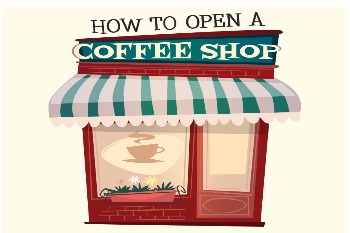Paying Coffee With Bitcoins: Craziness Or The Future?
Physical places to buy a coffee with your Bitcoins
 Bitcoin is a form of digital currency, created and held electronically. Bitcoins are produced by operating computers all around the world, using software that solves mathematical problems. The story goes that a software developer called Satoshi Nakamoto proposed Bitcoin, which was an electronic payment system based on mathematical proof, but it is not clear if it was a person or a collective or, or, or… The idea was to produce a currency independent of any central authority, transferable electronically, more or less instantly, with very low transaction fees. This means bitcoins are decentralised. No single institution controls the bitcoin network.
Bitcoin is a form of digital currency, created and held electronically. Bitcoins are produced by operating computers all around the world, using software that solves mathematical problems. The story goes that a software developer called Satoshi Nakamoto proposed Bitcoin, which was an electronic payment system based on mathematical proof, but it is not clear if it was a person or a collective or, or, or… The idea was to produce a currency independent of any central authority, transferable electronically, more or less instantly, with very low transaction fees. This means bitcoins are decentralised. No single institution controls the bitcoin network.
Bitcoin isn’t based on gold (as it was originally for what we currently consider to be money, like dollars, euros or any other known coin), it’s based on mathematics. Around the world, people are using software programs that follow a mathematical formula to produce bitcoins. The mathematical formula is freely available, so that anyone can check it. The software is also open source, meaning that anyone can look at it to make sure that it does what it is supposed to.
As it says in the White paper from Satoshi Nakamoto: “A purely peer-to-peer version of electronic cash would allow online payments to be sent directly from one party to another without going through a financial institution. Digital signatures provide part of the solution, but the main benefits are lost if a trusted third party is still required to prevent double-spending. We propose a solution to the double-spending problem using a peer-to-peer network.”Of course the traditional financial world reacted badly and skeptically to this new form of money, “Bitcoin and cryptocurrencies will come to a bad end” announced Warren Buffett, the Oracle of Omaha, widely known as a financial genius, during an interview for CNBC. “We don’t own any, we’re not short any, we’ll never have a position with them,” Buffett added “I get into enough trouble with the things I think I know something about. Why in the world should I take a long-term or short-term position in something I don’t know about?”
Bundesbank and all the Central Banks have been actively studying the application of the blockchain technology in payment systems, but at the same time the Central Bank’s position about Bitcoins swings between a skeptic feeling and a moderate tolerance. The following is a short list of reactions from the Central Banks:
U.S.: Privacy Worry
The Federal Reserve’s investigation into cryptocurrencies is in its early days, and it hasn’t been overly enthusiastic about the idea of a central-bank issued answer to bitcoin.
Euro Area: Tulip-Like
The European Central Bank has repeatedly warned about the dangers of investing in digital currencies. Vice President Vitor Constancio said in September that bitcoin isn’t a currency, but a “tulip” – alluding to the 17th-century bubble in the Netherlands. President Mario Draghi said in November the impact of digital currencies on the Euro-area economy was limited and they posed no threat to central banks’ monopoly on money.
China: Conditions ‘Ripe’
China has made it clear: the central bank has full control over cryptocurrencies. With a research team set up in 2014 to develop digital fiat money, the People’s Bank of China believes “conditions are ripe” for it to embrace the technology. But it has cracked down on private digital issuers, banning exchange trading of bitcoin among others.
U.K.: Potential ‘Revolution’
Bank of England Governor Mark Carney has cited cryptocurrencies as part of a potential “revolution” in finance. The central bank started a financial technology accelerator in 2016, a Silicon Valley practice to incubate young companies.
India: Not Allowed
Nevertheless, the Reserve Bank of India has a group studying whether digital currencies are backed by global central banks and if they can be used as legal tender. Currently, the use of cryptocurrencies is a violation of foreign exchange rules.
Canada: Asset-Like
The Bank of Canada’s senior deputy governor, Carolyn Wilkins, who is leading research on cryptocurrencies, said in an interview that cryptocurrencies aren’t true forms of money.
South Korea: Crime Watch
The Bank of Korea’s focus has been protecting consumers and preventing cryptocurrencies from being used as a tool for crime.
And going on from Japan to Morocco the outlook for Bitcoins is not getting better according to the Bloomberg Technology Review: Japan: Bitcoin is not a Currency, Germany: Investors Beware, Bitcoin is a speculative phenomenon, France: ‘Great Caution’, Singapore: Official Warning, Brazil: Support Innovation, Russia: ‘Pyramid Schemes’, Australia: Speculative Mania, Turkey: Important Element, Netherlands: Most Daring, Scandinavia: Exploring Options, New Zealand: Too Unstable, Morocco: Violating Law.
While the traditional finance system is trying to find a way to use Bitcoins within the Bank’s control, several physical places and bars are allowing payment with Bitcoin. Here is just a taste of places where it is possible to drink a coffee and pay with Bitcoins in Europe.
Italy:
Quibitcoin.it is the vehicle for the use of Bitcoins in Italy, on the portal it is possible to see all the shops, restaurants, coffee places and bars where it is possible to pay with Bitcoins.
- 040 Socialfood,Trieste
- Altrove 2.0, Pontoglio, Brescia
- Bar, Rovereto
- Barducks – Caffè d’amico, Rom
- Beer Time, Rom
- Caffetteria Pasticceria Mimosa, Altopascio
- Claby’s Cafè, Suno
- Draw, Trieste
- Mani Al Cielo, Rovereto
- Nicky’s Bar, Cles
- Nuovo Portico, Forcola
- Replatz sport bar since 1960, Rom
- Rico’s Food & Drink, Pordenone
- Sesto Senso, Asti
- Toma Bar, Rovereto
- Wall Street Café, Suisio
Most of these places are located in Rovereto, Trento Province. This is possibly the case case because right in Rovereto the local Government created the Bitcoin Valley (13.607km2, where all the shops, bars and so on accept Bitcoins).
Inbitcoin.it was also founded in Rovereto, which is the first enterprise totally based on the development of instruments able to use Bitcoins.
UK:
On the web site Wheretospendbitcoins.co.uk it is possible to find the physical places that accept bitcoins organised by category or place. Thanks to the project GoHome it is also possible to buy a luxury living location with Bitcoins.
Germany:
In Germany it is possible to use the guide Bitwala to spend Bitcoin in Germany and in particular in Berlin for caffeine fixes. The Berlin coffee scene is huge (Leuchtstoff or Tre Cabezas just to name a couple). Discussion about the best coffee could be an emotional one among Berliners.
Czech Republic:
Paralelní Polis’s Coffee, Prague’s cryptocurrency cafe, founded by the anarchic ethical hacker collective Ztohoven, is located in the suburb of Holešovice.
The aim of a Cryptocurrency Coffee Shop could be a philosophy against the actual money system, a disruptive idea or just a fad. One single fact is clear: in reality things are moving faster than the Central Banks and Governments want and somehow they will have to face it.
READ ALSO: Blockchain is Changing Power Relations in the Coffee Chain



